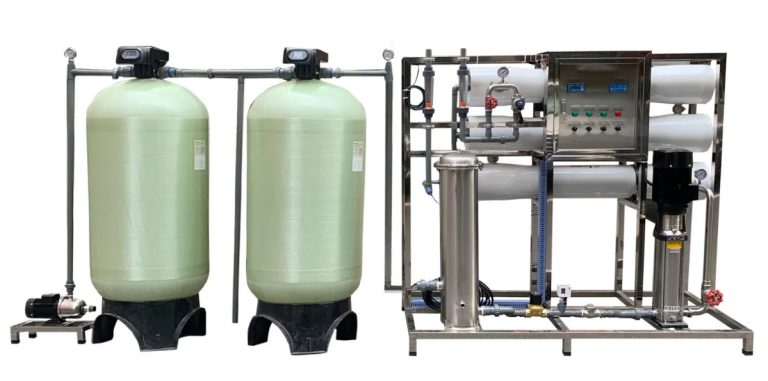Welcome To PFS Water Treatment Solutions
Complete Water and Waste Water Treatment Solutions

Price starting from 2,70,000/-
3000 LPH RO Plant
A 3000 liters per hour (LPH) Reverse Osmosis (RO) plant is a state-of-the-art water purification system designed to provide a significant volume of clean and safe drinking water. This advanced technology is widely used in various applications, including industrial, commercial, and residential settings, where a large supply of purified water is required. The heart of the system is its semi-permeable membrane, which effectively removes impurities, contaminants, and dissolved solids from the source water. As water passes through the RO membrane, it undergoes a meticulous filtration process, ensuring that harmful substances like heavy metals, salts, bacteria, and organic matter are eliminated. The result is water that meets or exceeds the most stringent quality standards, making it suitable for consumption, cooking, and various industrial processes. With its high capacity, efficiency, and ability to improve water quality, a RO plant is a crucial asset in addressing water purification needs on a larger scale, contributing to better health and environmental sustainability
In an era where access to clean and safe drinking water is a fundamental necessity, the 3000 liters per hour (LPH) Reverse Osmosis (RO) plant emerges as a groundbreaking solution that promises to transform the way we secure this precious resource. This advanced water purification system is rapidly gaining prominence in various sectors, from industries to communities, due to its exceptional capacity and efficiency in delivering high-quality purified water.
The Technology Behind the 3000 LPH RO Plant
At the heart of the 3000 LPH RO plant lies an intricate and sophisticated process known as reverse osmosis. This technology employs a semi-permeable membrane that acts as a barrier to impurities, contaminants, and dissolved solids in the source water. As water is forced through this membrane under pressure, it selectively permits the passage of water molecules while blocking harmful substances, including heavy metals, salts, bacteria, and organic matter. The result is water of impeccable quality that complies with the strictest purity standards.
Applications of 3000 LPH RO Plant
The versatility of the 3000 litres per hour RO plant is one of its standout features. Its high capacity makes it an invaluable asset in a multitude of applications.
1. Industrial Use: Industries with substantial water requirements, such as manufacturing and food processing, have adopted these systems to ensure the quality of their processes and products. The RO plant can efficiently handle large volumes of water, safeguarding against potential contaminants that might compromise production processes.
2. Commercial Ventures: Restaurants, hotels, and other commercial establishments rely on RO plants to deliver consistently pure water for cooking and beverage preparation. The 3000 LPH capacity ensures a steady supply to meet high demand.
3. Residential and Community Settings: In areas with unreliable or contaminated water sources, communities and households benefit greatly from these systems. They provide a dependable source of safe drinking water, reducing the risk of waterborne diseases and improving overall health.
4. Environmental Impact: The 3000 LPH RO plant also plays a vital role in environmental conservation. By purifying water at such a scale, it reduces the need for single-use plastic bottles and minimises the environmental footprint associated with water treatment and transportation.
Challenges and Considerations
While the 3000 LPH RO plant offers numerous advantages, it’s important to address some key considerations. The process can be energy-intensive, requiring adequate power supply. Additionally, the disposal of concentrated brine waste generated during the RO process requires careful management to avoid environmental harm.
The Path Forward
The 3000 LPH RO plant represents a significant leap forward in our ability to provide clean, safe, and abundant water. Its widespread adoption holds the potential to improve the quality of life for countless individuals and communities while contributing to sustainability goals. However, it’s essential to strike a balance between its benefits and environmental concerns, emphasising responsible usage and innovation to further enhance its efficiency.
In conclusion, the RO plant is a technological marvel that holds promise in addressing the global challenge of water purification. As we continue to explore innovative solutions to secure our water resources, this system stands as a shining example of progress in ensuring access to clean and safe drinking water for all.
